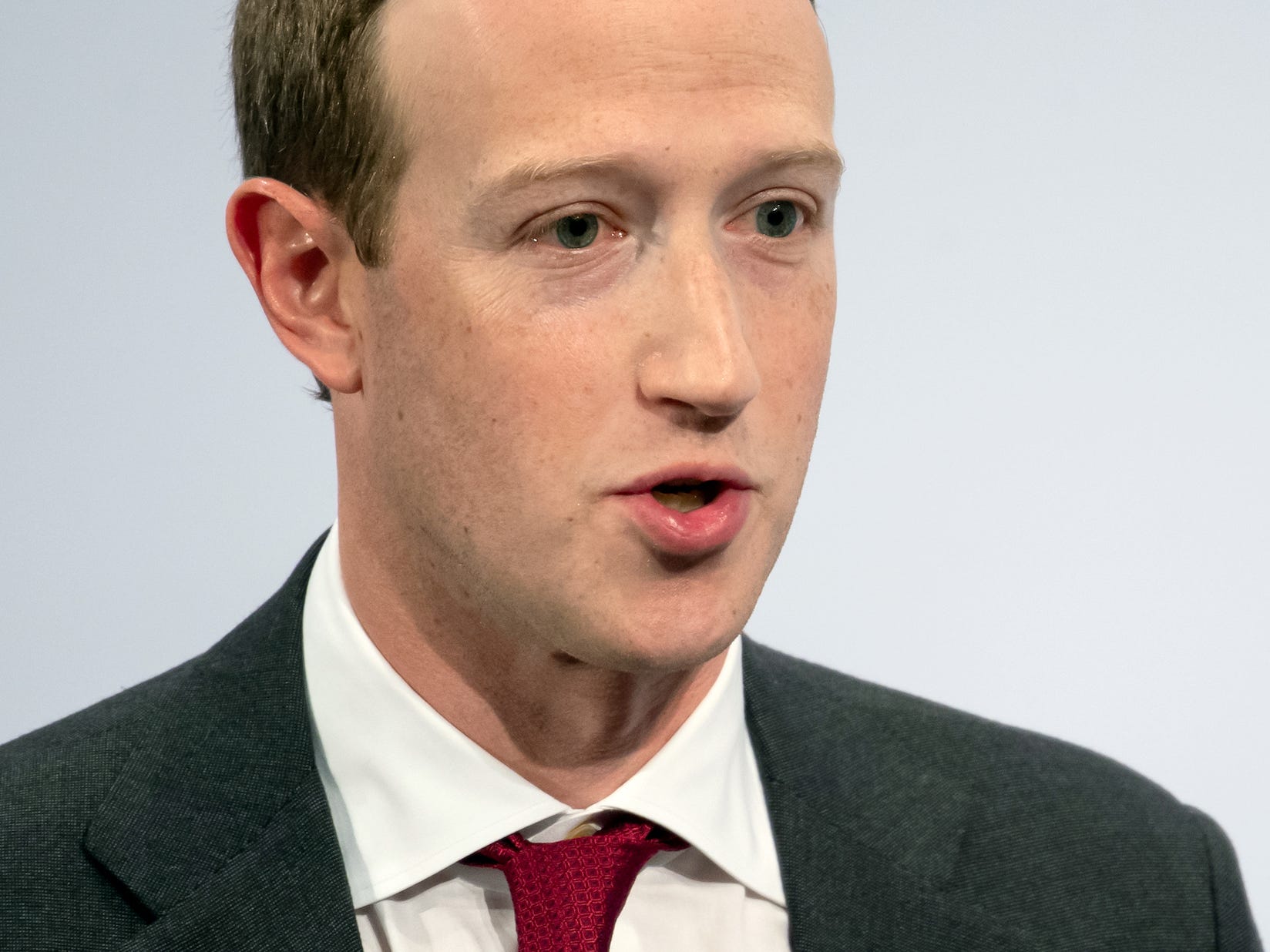
Sven Hoppe/picture alliance via Getty Images
- Facebook CEO Mark Zuckerberg said there should be liability for “some content” on its site, but that it still shouldn’t be regulated as news publishers are, a move that has emerged amid the ongoing discussion around Section 230 revisions.
- Section 230 is an internet law that shields online platforms from being liable for content that people post, a liability that applies to news publishers.
- Republican and Democratic lawmakers have been advocating for Section 230 reform to combat alleged anti-conservative bias and the spread of misinformation, respectively — a reform that could majorly impact these companies’ businesses.
- But Zuckerberg argued that Facebook isn’t a publisher since it doesn’t create content and that it isn’t a telecom company either and should therefore be upheld by a distinct regulatory model.
- Visit Business Insider’s homepage for more stories.
Facebook CEO Mark Zuckerberg said it “makes sense” for there to be some liability for some content on its site in a Tuesday Senate hearing. However, he said he doesn’t think that means tech companies should be regulated as news publishers, a possibility that has been floated as the discussion continues around revisions to Section 230.
The topic was broached during Tuesday’s virtual hearing when Sen. Richard Durbin (D-IL) asked Zuckerberg and Twitter CEO Jack Dorsey for their take on how revisions of the internet law could apply to them. Since the 1990s, Section 230 has been protecting internet companies from being liable for content that people post on their sites, a liability that applies to news publishers. Lawmakers are now stressing for Section 230 to be revised and for tech to be regulated as publishers or telecommunications companies.
But the CEO said Facebook isn’t like a phone company or a news publisher since Facebook doesn’t create content but rather gives a platform for people to voice their opinions.
“I do think we have responsibilities, and it may make sense for there to be liability for some of the content that is on the platform,” Zuckerberg said. “But I don’t think the analogies to these other industries that were created previously will ever be fully the right way to look at this.”
Zuckerberg proposed that there should instead be a separate regulatory system for internet platforms that have emerged in the last couple of decades.
"People ask if the regulatory model should be more like the news industry or more like telcos, but from my perspective, these platforms are a new industry and should have a different regulatory model that is distinct from either of those other two," Zuckerberg said.
Section 230 has gone from a somewhat stodgy internet law to a hot-button topic in recent years as many on both sides of the aisle have called for greater regulation in the tech industry. The law has become politicized despite revisions of some sort having largely been a bipartisan issue — Democrats have been pushing for Section 230 to be tweaked to hold tech firms more accountable when policing the spread of misinformation and hate speech online. Republicans are pushing for Section 230 reform because of what they say is rampant discrimination of conservative content on tech platforms.
Tuesday's hearing was scheduled to discuss how Twitter and Facebook moderate content on their site, specifically how they have done so around the 2020 presidential election and how they handled a New York Post story about Joe Biden's son. Conservative lawmakers during the hearing have in part questioned Zuckerberg and Twitter CEO Jack Dorsey over what they say is anti-conservative bias on their platforms.

